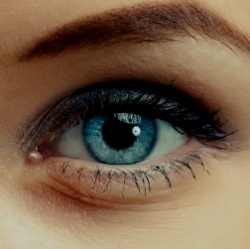
Surgeons have carried out a pioneering human embryonic stem cell operation in an ongoing trial to find a cure for blindness for many patients. The procedure was performed on a woman aged 60 at Moorfields Eye Hospital. It involved "seeding" a tiny patch with specialised eye cells and implanting it at the back of the retina.
The London Project to Cure Blindness was established a decade ago to try to reverse vision loss in patients with age-related macular degeneration (AMD). Ten patients with the wet form of AMD will undergo the procedure. All will have suffered a sudden loss of vision as a result of defective blood vessels in the eye. They will be monitored for a year to check that the treatment is safe and whether their vision improves. The woman who was the patient, and does not wish to be named, had the operation last month.
Prof Peter Coffey, of the UCL Institute of Ophthalmology, who is co-leading the London Project, said: "We won’t know until at least Christmas how good her vision is and how long that may be maintained, but we can see the cells are there under the retina where they should be and they appear to be healthy." The cells being used form the retinal pigment epithelium (RPE) – the layer of cells that nourish and support the photoreceptors in the macula – the seeing part of the eye.
In macular degeneration, the RPE cells die, and as a result the eye loses function. Patients with AMD lose their central vision, which becomes distorted and blurred. The cells used in the operation were originally derived from a donated early embryo, smaller than a pinhead, which has the potential to become any cell in the body.
Prof Lyndon Da Cruz of Moorfields Eye Hospital, who carried out the surgery, said: "This is truly a regenerative project. In the past it’s been impossible to replace lost neural cells.
"If we can deliver the very layer of cells that is missing and give them their function back this would be of enormous benefit to people with the sight-threatening condition".
If the treatment is successful, the scientists say, it would also help patients in the early stages of dry AMD, and could potentially halt their vision loss.
